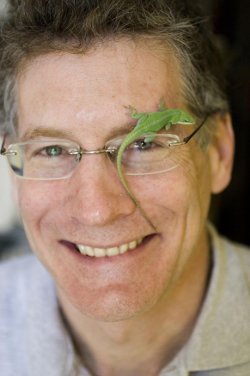
Jonathan Losos
(Harvard University, USA)

BIO
Jonathan B. Losos is Curator in Herpetology at the Museum of Comparative Zoology and Monique and Philip Lehner Professor for the Study of Latin America in the Department of Organismic and Evolutionary Biology at Harvard. His research focuses on understanding the evolution of biodiversity: how species arise and how diversity is maintained within communities. To investigate such questions, his research integrates field studies of ecology and behavior, laboratory studies of functional capabilities, and molecular studies of DNA. In addition, he has conducted experiments in nature to study natural selection and observe evolution as it occurs. His organisms of choice are lizards, particularly Caribbean and Central and South American lizards in the genus Anolis. His recent book on these lizards, Lizards in an Evolutionary Tree: Ecology and Adaptive Radiation of Anoles, received the Daniel Giraud Elliot Medal given every four years by the National Academy of Sciences for a book published in zoology or paleontology. Losos received his undergraduate degree at Harvard and his Ph.D. at Berkeley, then taught at Washington University in St. Louis before coming to Harvard, where he teaches the General Education course on evolutionary biology and the advanced course on herpetology, as well as freshman and graduate seminars and junior tutorials on topics in evolution and conservation.
ABSTRACT
Historical Assembly of Communities: Comparison of island vs. mainland lizard assemblages
Caribbean Anolis lizards have become a model for studies of community ecology and adaptive radiation. Particularly notable is the evolutionary convergence among islands: essentially the same set of habitat specialists—termed ecomorphs—have evolved on each island. However, a little appreciated fact is that the anoles of Central and South America are equally as diverse as those on the islands. Nonetheless, anole evolution has traveled a very different course on the mainland: although ecologically diverse, continental anoles have not converged on the Caribbean ecomorphs. Why has adaptive evolution occurred so repeatedly on the islands and in a very different way on the mainland? Both historical and ecological perspectives are necessary to unravel this mystery.
